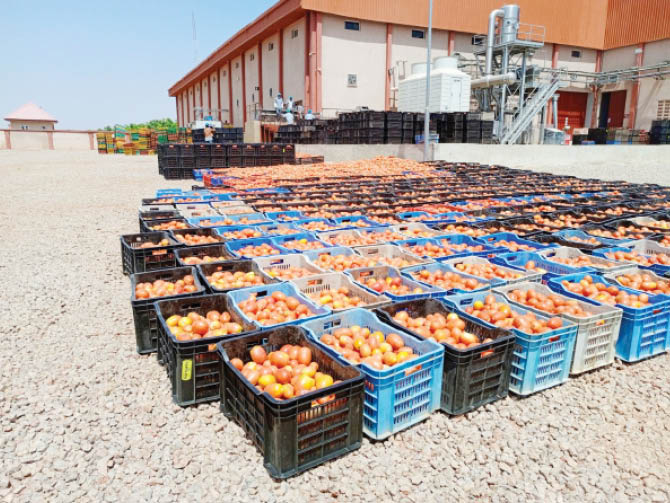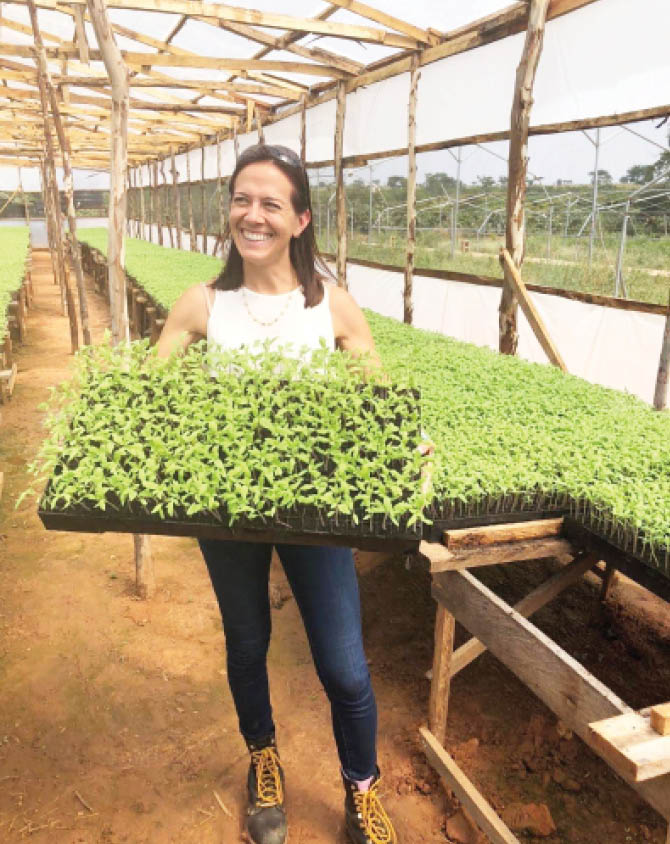For Mira Mehta, seeing her tomato products in stores is like a dream. “It doesn’t feel real sometimes,” she said, especially when she considers all the hurdles and delays that have occurred since the day she decided to invest in tomato processing.
The idea to turn tomatoes into paste initially occurred to the American investor in 2008 when she experienced her first tomato market glut in northern Nigeria, where farmers produced approximately 65 per cent of the tomatoes grown in the West Africa sub-region. Ironically, she was also the world’s largest tomato paste importer.
In an exclusive interview with Daily Trust on Sunday, she described the journey so far as difficult but satisfied with where she is today and her unwavering determination to reach the next goal.
“So many things have been harder than I thought. Nigeria has gone through so much over the last few years; it just feels like we are emerging out of a dream. But I feel really good,” she said.
Experts seek reinvestment of petroleum subsidy in health sector
Town planning, distinct in building industry
Today, Mehta, the founder and managing director of the Tomato Jos Enterprise, has over 500 hectares of farm producing tomatoes with yields seven times above national average. And she has begun processing tomato paste from her $5million plant at the farm site at Kangimi, Igabi Local Government Area of Kaduna State.
“Right now we have the capacity to make something like 10,000 cartons a day. But I would say that even at that size, we are still a very small player in the market,” the entrepreneur said.
Her long-term objective is to double the plant’s capacity to 200 tonnes per day and increase the number of farmers from the current 1,000 to an average of 2,000.
“What we are hoping in the future is to be able to do something like 200 tonnes per day of fresh fruit. We are not quite there yet, but that’s a long-term goal for us. And that would probably mean an additional 1,000 farmers that we are working with, which will have a massive impact in the whole area,” she added.
For her, the Lagos market is extremely important, in addition to the push to establish a strong presence in Kaduna and other northern areas like Jos, Kano and Abuja.

Although she is yet to hit Lagos due to elections, she explained why it is important to her, saying “First and foremost, Lagos actually carries a pretty huge consumer class. In terms of relative wealth in the country, you would find more middle class and emerging middle class people in Lagos. I think that culturally, Lagos is such a central part of what people think about when they think about Nigeria. For any brand to really take hold and have brand equity, certainly, the Lagos population must be aware of it and must be able to back it. It is a very crucial market, not only from a cultural standpoint, but also from a market size standpoint.”
Mehta said she launched her products in other markets first “because we wanted to learn from our mistakes in smaller markets before we decided to tackle the Lagos market. We have actually had a lot of online followers and people who have been aware of Tomato Jos and who have been following our journey, a lot of them are actually based in Lagos. And so, we feel that to a certain extent, this is us finally being able to connect many of our followers to the products. So we see that as a very important piece of our story.”
Tomato production in the country is majorly done during the dry season, but to ensure sustainability, she ensures that the current large volumes of production are also turned into concentrate to fuel supply throughout the whole year.
Apart from the 1,000 farmers under the company’s out-grower scheme in Kaduna, the farmer said it would try and enter into smaller relationships with other farmers in other areas like Jos that would feed the factory.
Speaking on insecurity she said, “It is tough because we feel that our local community is benefiting so much from the factory. Farmers in our area are increasing their incomes by five or six times. But we have a lot of restrictions around —movement is very difficult.”
Need to invest in water harvesting
The investor opined that the federal government needed to do something in the area of rain water harvesting to avoid conflict that might erupt over right to water in the future, something she considers a major concern to investors.
“Nigeria has so much water during the rainy season, and one of the things I think would be really valuable but very expensive to do would be for the federal government to invest in large scale rainy season water capturing mechanisms because right now, all that water ends up damaging people’s farms.
“We saw so many farms and homes damaged in 2022. As a result of dams being overfilled and these same dams may be running out of water, just six months later. So, the questions are: Can we increase some of the capacity and dredge some of the dams? Can we create additional places to store this water? I believe that over the next 10 to 15 years, water rights and access to water is going to become a massive issue. That’s what we are going to be seeing as an endemic problem. It is something I think about a lot,” she said.
Perspective on importation
Concerning importation, which farmers saw as detrimental to domestic production, the farmer stated that the country was yet to meet much of its demand locally for the time being. She added that stopping importation might not be the best option for the country for the time being but in the long run.
“The reality of this market is that the demand is very big. The demand for tomato paste is actually larger than what all of the tomato factories that are currently in Nigeria can produce. I think that in the short term, there has to be some level of importation to supplement what people are producing locally,” she stated.




